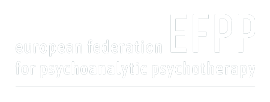History
EFPP membership, sections & Board
Constitution
EFPP Board
Areas of Work & Future Tasks
Join EFPP
EFPP Membership, Sections and Board
EFPP Membership, Sections and Board
PRESIDENT
The President is also a member of the Board.
The Delegates elect the President on the Delegates Meeting.
BOARD
Each Section elects 2 persons into the Board on the Delegates Meeting (Section Chair and Section Representative).
The Board co-opts persons with special tasks. Additional persons assits the EFPP Board (Administrative Secretary, Financial Officer, Web Secretary).
DELEGATES
Each Member Organisation sends up to 8 persons/delegates (2 persons for each of the 4 Sections) to the Delegates Meeting.
MEMBERS
Member Organisations within one country form a National Network.
You can join the EFPP through an EFPP Member Organisation.
Membership in the EFPP is open to all European organisations. Exceptionally an organisation situated outside the European borders may be accepted if its application for membership has been accepted by the EFPP Board.
Currently 30 countries in Europe are represented by their organisations as full members in the EFPP. Additionally, there are associate members and observers. The EFPP is an organisation of member organisations. Psychoanalytic psychotherapists belong to the EFPP through their organisation which is a member of the EFPP. Each member organisation with full membership can send up to eight delegates, two for each of the four sections, to the biennial Delegates Meeting. The Delegates are appointed by their member organisations.
The member organisations of one country form a National Network. The task of this strong formation is the leveraging of synergies and bundling of forces when it comes to negotiations with political structures in the given country. The representatives of the National Network which itself represents all member organisations can then speak with one voice.
The EFPP consists of four sections working with psychoanalytic psychotherapy for Adults, Children and Adolescents, Groups and Couple and Family Psychotherapy. The youngest of them, the Couple and Family section, was established at the biennial Delegates’ Meeting in 2009.
The Board consists of two persons from each section (Section Chair and Section Representative) plus the President. According to the EFPP constitution (amended in 2017), the members of the Board are elected by the Delegates in the section assemblies. The president is chosen directly by the assembly of all Delegates at their biennial meeting. Members of the Board including the president are elected for four years and can be re-elected for another period of four years. The Board also requires the help of an administrative secretary. The Board can co-opt members to take part in the work with specific tasks.
Constitution and more information about delegate roles.

